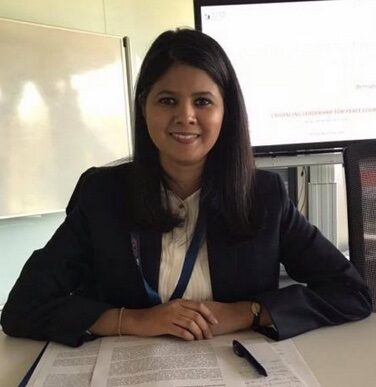
As the United Nations observed August 22 as the International Day Commemorating the Victims of Acts of Violence Based on Religion or Belief, Pakistan’s religious minorities continued to endure forced conversions and unwarranted prosecutions under draconian blasphemy laws.
Pakistan recently celebrated its 75th Independence Day on August 14 and National Minorities Day on August 11, but Pakistan’s beleaguered religious and ethnic minorities question whether they are truly free and independent.

A report published in November 2021 by the All Party Parliamentary Group on Freedom of Religion and Belief argued that approximately 1000 girls from other religious groups in Pakistan had been abducted and forcibly converted. Forced conversions are heinous because they coerce young girls from minority communities, who are used as soft targets to inflict pain and violence against the larger communities.
Pakistan has faced global opprobrium for its shaky commitments to safeguarding religious minorities, and the unwillingness of the Pakistani government to denounce extremism without equivocation. But that has not slowed the momentum of oppression targeting Christians, Hindus, and Ahmadis, who are among the most marginalized and persecuted groups in the country.
Pakistan’s draconian blasphemy laws are well known and written about often. But forced conversions are now the primary form of inflicting violence and wiping out entire communities in Pakistan.
Despite attempts to do so, especially in provincial assemblies, liberal Pakistani legislators have been unable to pass legislation against forced conversions and further amending Pakistan’s child marriage laws. These two issues have a deep correlation and further complicate attempts to enact any such laws.
A typical case of forced conversion begins with abducting a minor girl, typically from lower income areas in Pakistan, especially villages and peri urban areas. A local landlord or similarly influential figure, or someone seeking to settle a personal score, arranges the kidnapping, either for his own benefit or to “teach the family a lesson.” Blasphemy laws are exploited in very similar ways.
This is usually followed by rape to bring shame and trauma upon the minor girl, her family, and the local community.
In most countries, rape and abduction of a minor girl would be treated as a heinous crime. However, the catch here is that the abductor has already arranged to marry the victim. The marriage, though not permissible under provincial laws that disallow marriage to a girl under the age of 16, involves a conversion of faith from Christianity or Hinduism to Islam.
When a case of forced conversion is taken to court, it is difficult for the victim’s lawyer to prove that the marriage is unlawful for two key reasons. First, the victim has been converted to Islam, which bolsters support for the abductor within Pakistan’s legal system where Sharia law may override other aspects of criminality in a given case.
Second, the perpetrator is normally successful in forging the victim’s national birth registration documents to falsely claim the victim’s age as 16 years or older. The weak institutional structure in Pakistan enables the powerful to manipulate and get away with forging fake documents and winning a trial based on that evidence.
Most cases of forced conversion go unreported, as the status of religious minorities is significantly diminishing. Making matters exceedingly worse, such cases bring layers of trauma to the victims and their families.
The ones that are reported normally face significant backlash from right wing elements who rally support from masses claiming without evidence that Christian and Hindu girls escape their poverty by running away with a Muslim man who could be thrice her age. What is rarely asked is why have Pakistani government entities (whether national or provincial) systematically ensured institutionalized discrimination to exist so that religious minorities remain in a loop of poverty and continually vulnerable to horrific forms of abuse and exploitation.
Supporters of conversion of young religious minorities claim that if a girl wishes to convert to Islam, there should be no opposition, but conversion accomplished by force, fraud, intimidation, or manipulation is no conversion at all. Moreover, it is well known what happens to those who oppose conversion or blasphemy laws inside Pakistan.
Without hard evidence and strong data on forced conversions, pushing legislation is becoming even more difficult. Lawmakers are scared of facing questions about their faithfulness to Islam if they legislate against forced conversions to Islam.
Any discussion on child marriage is opposed by a religious narrative that denounces laws in Punjab and Sindh where the minimum age for marriage is 16 and 18, respectively. Discussion of this issue inside Pakistan is difficult because any international human rights forum or foreign government raising it is portrayed as a foreign conspiracy against Pakistan.
Seventy-five years after Pakistan’s founding, its persecuted religious communities need support, both within and outside the country. They need the protection of strong legislation and its implementation. A commitment to protect minor girls and religious communities equally is essential.
Farahnaz Ispahani is a senior fellow at the Religious Freedom Institute, a global fellow at the Woodrow Wilson Center and Member, Anti-Defamation League (ADL) Taskforce on Middle East Minorities. She has served as a member of the Pakistani parliament.
Elaine Alam is an international development and human rights practitioner, policy advocate and Pakistan lead for the South Asia Collective.
THE RFI BLOG

Myths of Religious Nationalism in America and Abroad

France’s Olympic Hijab Ban Violates International Law And Exacerbates Tensions

RFI Briefs USCIRF on Lessons from 25 Years of U.S. Designating Religious Freedom Violators

Thought Police: Protecting the People from Prayer

A Religious “Delaware”: Establishing a State Haven for Religious Corporations
CORNERSTONE FORUM

Challenges to Religious Freedom in Iraq and the Critical Need for Action

Public Bioethics & the Failure of Expressive Individualism

Religious Liberty in American Higher Education

Scotland’s Kate Forbes and the March of Secularism

